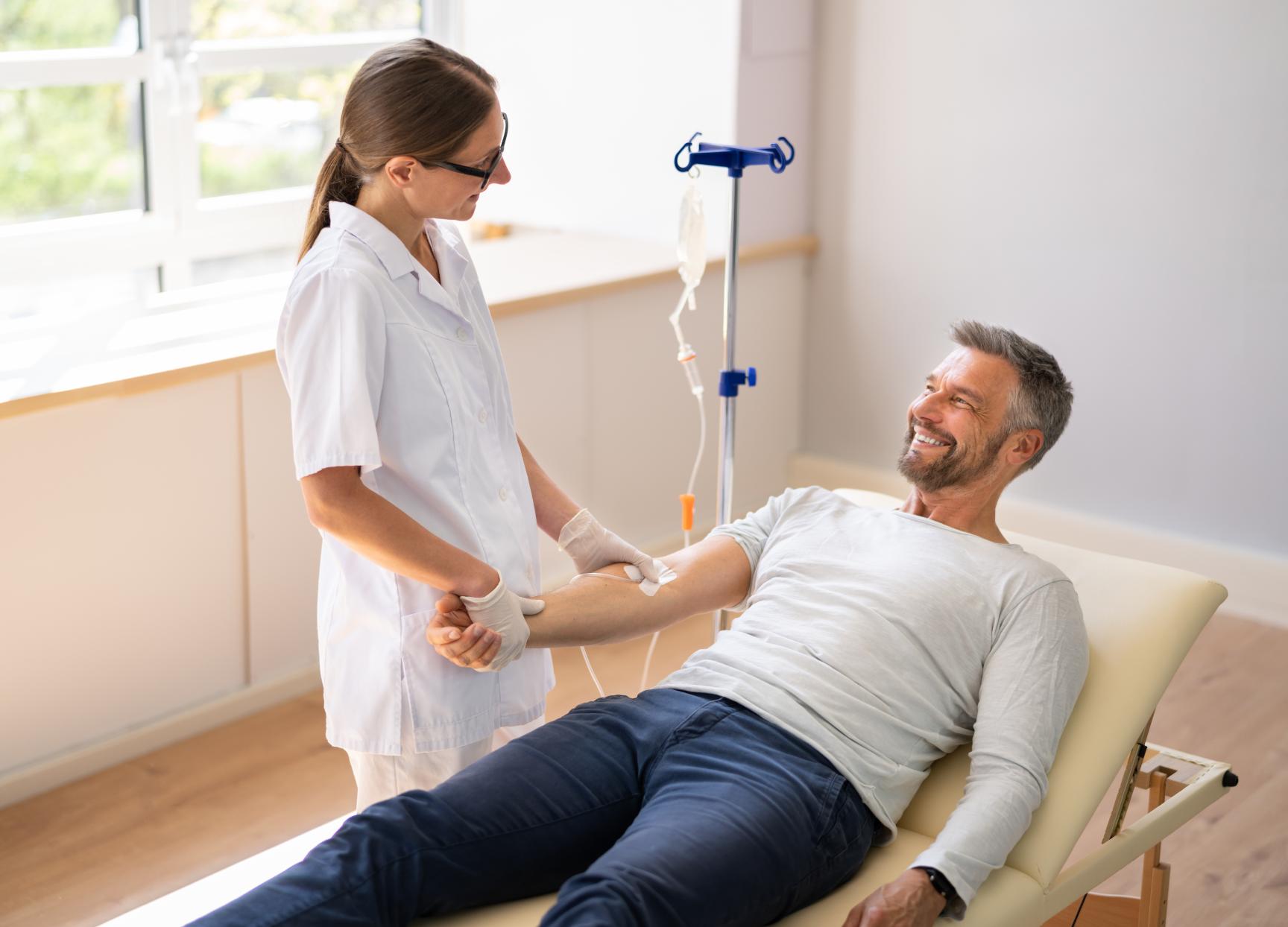You will generally need to get a referral letter from your NHS GP, Private GP, or other doctor to access this service or treatment. Find out more including how we can assist you
IV Ketamine infusions
Ketamine is used to treat a variety of chronic pain syndromes, especially those with a neuropathic component.

What is Ketamine
Ketamine was developed in the 1960s as an anaesthetic drug, however, it has been subsequently found to have profound analgesic and antidepressant effects. Ketamine is also used to treat a variety of chronic pain syndromes, especially those with a neuropathic component.
Ketamine is licensed as an anaesthetic agent. It is used “off-label” for chronic pain, drug-resistant depression and PTSD. It is not economical for a drug company to apply for a specific licence as it has passed the point when a patent would be viable for a drug company. However, ketamine is now firmly established as a treatment option for chronic pain and treatment-resistant depression.
Dr Deane Halfpenny and pain colleagues have been treating patients with low-dose intravenous ketamine infusions since 2016 and have developed day-case outpatient treatment since that time.
On the day of your appointment
Please eat and take medication as normal unless advised otherwise by the chronic pain consultant.
You will require someone to escort you home after the treatment, this will need to be confirmed prior to treatment being administered. Please note that you should not drive yourself home post-treatment.
A small cannula will be inserted into a suitable vein in your arm and secured for the duration of the infusion. In addition to the ketamine infusion, you will be given intravenous fluids, an antiemetic (anti-sickness) and a short-acting sedative prior to the infusion
The ketamine is prepared in a sterile manner by the clinical team and delivered via an infusion pump that is set to deliver the exact amount of ketamine prescribed for you by the chronic pain consultant.
The low-dose ketamine infusion will take 2 hours to complete, once completed the cannula will be removed.
You will have routine observations undertaken by a nurse. These will be recorded prior to, during and post-low-dose ketamine infusion and will including pulse, blood pressure, respiratory rate, sedation score and disassociation or changes in mood. You will also be required to have safely eaten, drunk oral fluids and passed urine prior to discharge.
Follow-up and Treatment plan
You will be given a follow-up appointment at the time of booking your ketamine treatment. This will normally take place 2 – 3 weeks following the infusion.
If there has been a positive response to the treatment you may be offered further appointments for low-dose ketamine infusions.
What are the potential side effects?
With all treatments, it is important to recognise some of the risks associated with IV Ketamine infusions
Common side effects include:
Anxiety and agitation
Abnormal behaviour, confusion and disorientation
Double vision, involuntary eye movements
Things appearing or sounding peculiar or different than normal
Increased muscle tone and/or jerking movements
Nausea and/or vomiting
Skin reactions
Uncommon side effects include:
Arrhythmias
Respiratory depression
Treatment Programme
IV Ketamine infusions
Introduction
Treatment
No longer than 2 hours
Preparation
Eat & take medication as normal unless advised o...
Risks
Anxiety, abnormal behaviour, confusion and disor...


